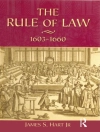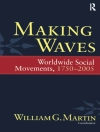In the late nineteenth century, as a consequence of imperial conquest and a mobility revolution, Russia became a crossroads of the hajj, the annual Muslim pilgrimage to Mecca. The first book in any language on the hajj under tsarist and Soviet rule, Russian Hajj tells the story of how tsarist officials struggled to control and co-opt Russia’s mass hajj traffic, seeing it as not only a liability but also an opportunity. To support the hajj as a matter of state surveillance and control was controversial, given the preeminent position of the Orthodox Church. But nor could the hajj be ignored, or banned, due to Russia’s policy of toleration of Islam. As a cross-border, migratory phenomenon, the hajj stoked officials’ fears of infectious disease, Islamic revolt, and interethnic conflict, but Eileen Kane innovatively argues that it also generated new thinking within the government about the utility of the empire’s Muslims and their global networks.
Open Access edition funded by the National Endowment for the Humanities
Table of Content
Introduction: Russia as a Crossroads of the Global Hajj1. Imperialism through Islamic Networks2. Mapping the Hajj, Integrating Muslims3. Forging a Russian Hajj Route4. The Hajj and Religious Politics after 19055. The Hajj and Socialist Revolution Conclusion: Russian Hajj in the Twenty-First Century
About the author
Eileen Kane is Associate Professor of History at Connecticut College.












